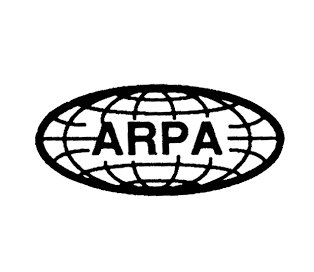I’ve taken to calling the pieces I write for FreakTakes “administrative histories.” The reason I opted for that name instead of “progress studies histories” or “metascience histories” is that it was the name that drew the fewest confused stares and/or eye rolls from the scientists and engineers whom I hope to attract. Some think this classification is a bit boring…but I have no problem with that! After all, I have — to some extent — made my name diving deeper into the boring details of science and engineering history than most would ever feel incentivized to do just to answer specific questions like “How did Bell Labs choose its research questions?” or “Why in the hell was Warren Weaver confident enough to shift 80% of the Rockefeller Foundation’s natural sciences budget to some no-name field halfway between biology and physics?”
Luckily, it turns out those who run research orgs and fund research believe administrative histories like these help them do their jobs better. Some in the community have even reached out to me asking if I could expand my work to cover a specific sub-area of particular importance: ARPA history.
In the coming months, I plan to do jus that. I will be writing administrative histories on specific DARPA/ARPA projects throughout history just as I have been doing with industrial R&D labs. Each individual write-up will be a bit shorter and there will be a bit less storytelling, but there will be many more of them to make us of. The hope is that these will prove useful to PMs at organizations similar to DARPA as well as the broader science and engineering research community. The work is being done with the help of former ARPA PMs, making full use of those who have written books containing details on specific ARPA projects, and in my role as a Fellow with the Good Science Project.
Please subscribe to follow along with the work! And, of course, I would be happy to talk through any of the write-ups with practitioners who have questions. Later this month, I’ll be releasing the first batch of pieces covering the history of 8-10 DARPA projects in about 40-50 pages of writing. This first batch will largely cover computing projects from the late 1970s into the early 1990s. The following batch will largely cover projects from DARPA’s earlier decades of computing projects. As the project wears on, I hope to cover projects from all eras and general subject areas of DARPA history.
This project will take a deep look at projects that are considered unequivocal successes as well as those that are remembered more for their lessons learned than scientific outputs. The goal of the project is, first and foremost, to produce materials that help those who manage research funding portfolios and labs to do their jobs even better. The tone of the administrative histories on this Substack has always been a positive one and I intend to keep it that way even when writing about projects that did not work out.
Please subscribe to follow along! If you know any great ARPA alumni who I should talk with or projects from history that I should look into, please ping me and let me know! Pointing me to any useful reading materials is always appreciated as well. My Twitter is right here and my email is egillia3 | at | alumni | dot | stanford | dot | edu.
Please subscribe and follow along! Thanks for reading.




I have been having a great time reading many of the books you've cited, esp. From Nowhere to Know-how and the Weaver autobiography. I wonder if you could start keeping a bookshelf page on this stack, with just a sentence or two on each book to guide us or say which posts it informed, or else maybe start adding a recommended reading list below each post? I have enjoyed some of the books enough that I've started filling a bookshelf in our lab's office space, in the hope of sharing the gospel more widely.
Amazing topic!